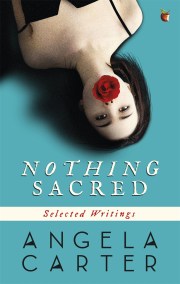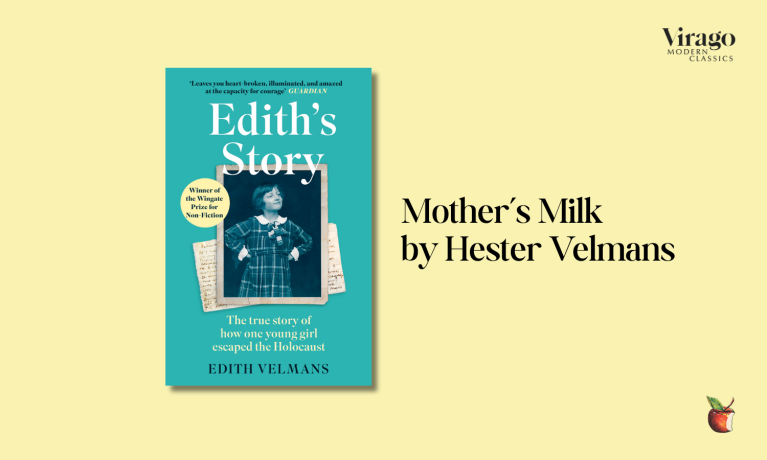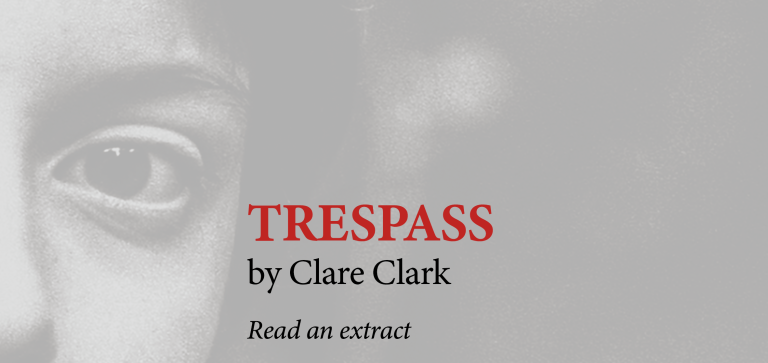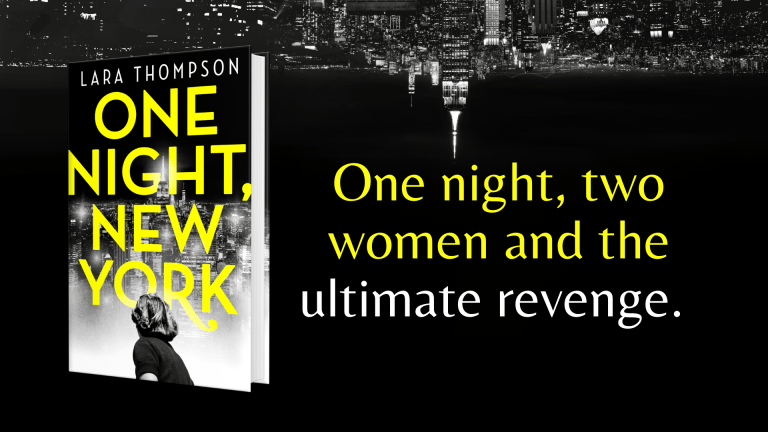Celebrating Angela Carter
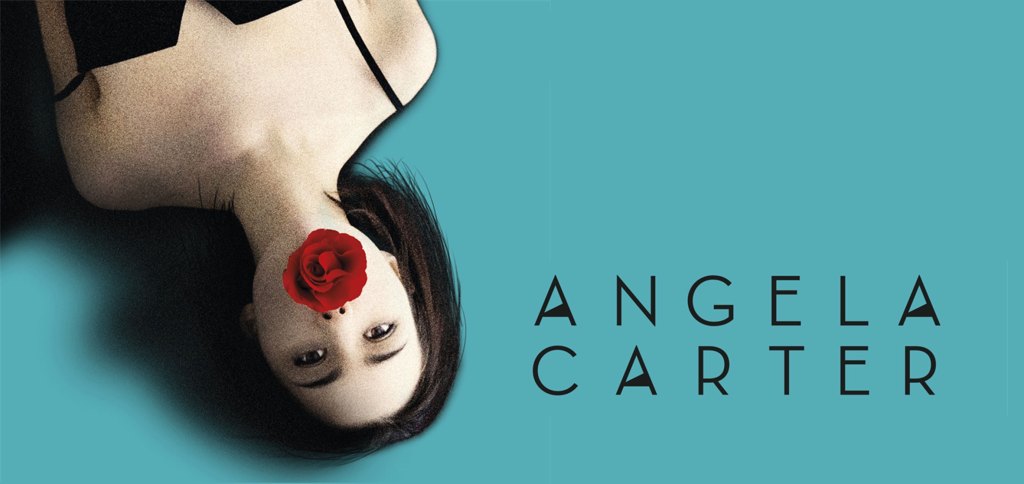
This May would’ve marked Angela Carter’s 80th Birthday. To celebrate we are sharing snippets from her extraordinary career, including this extract from Nothing Sacred.
‘In the pursuit of magnificence, nothing is sacred,’ says Angela Carter, and magnificence is indeed her own achievement. One of the most acclaimed novelists of her generation, her work as a journalist and critic was no less original.
Long autobiographical pieces on her life in South Yorkshire and South London are followed by highly individual inspections of ‘abroad’. Some of her most brilliant writing is devoted to Japan – exotically and erotically described here – so perfectly suited to the Carter pen. Domestically, Angela Carter used her mordant wit and accurate eye to inspect England and Englishness as it manifested itself throughout the land. Then she turns to her own craft, and her extraordinarily wide-ranging book reviews are masterpieces.
Poets in a Landscape by Angela Carter
Ghosts of dead poets don’t walk the Lake District, no – they hike. Fell-walking ghosts as mad as hatters, high as kites . . . you feel you might surprise them at the rim of Rydal Water, or spot their phantom reflections in the magic mirrors, Grasmere, Windermere – I bet the glassy tarns looked terrific on opium! Although the story goes the Wordsworth sibs, ace pedestrians and compulsive water-viewers, only took laudanum for medicinal purposes, your honour. In Lakeland, among daffodils shuddering in April snow, how easy to imagine the Wordsworths, freaked out as all hell, trudge, trudge, trudging the miles from Dove Cottage to Windermere to check if their connection (probably Humphrey Davy) had delivered.
For surely they must have been smashed out of their skulls all the time, Wordsworth and his sportive sister with her crazy eyes (‘wild and startling eyes’, opined de Quincey, noting, no doubt, and who more knowledgeably, her expanded pupils). Why else should they have gone striding off in all weathers, whirling blizzard, serrating frost, braving the peculiarly wet Cumbrian rain, to take in yet another peak or mere in a different light? How else could they have stood it, had they not been smashed? They took bits of cold pork or mutton in their pockets, to snack on. Wordsworth, absent-minded as only a genius or an incompetent, kept forgetting his gloves or his cardigan and having to go back for them.
Behind every great man is a silly woman who thinks the sun shines out of her darling’s arse-hole and believes his over-sensitive fingers will rot off if he does the washing-up. Conversely, behind every great woman is some irascible fellow who says, for example: ‘Of course you can’t tie a clove hitch, don’t be silly; give me the rope.’ And she gives it to him, all right, The Reverend Patrick Brontë is a perfect example of this latter type; his daughters were bound to be geniuses, in order to spite him. But, alas, poor Dorothy Wordsworth, how could she protest her own genius in the face of a man who freely acknowledged it, yet couldn’t have tied a clove hitch to save his life? There is no role so thankless as that of the muse of a person who needs looking after.
All the same, the addiction to hiking. Of course, the Wordsworths were fleeing a stress situation at home. In the confined space of Dove Cottage, they must have been bumping into one another all the time and then jumping apart as if they’d both simultaneously touched a live wire, mumbling ‘Sorry’ and looking out the window to see if it had stopped raining. What a finely-wrought atmosphere of sexual tension! Where else to go – even if it hadn’t quite stopped raining, yet – but out into God’s good fresh air, among the insolent grandeur of the snow-clad mountains, let the boisterous winds blow it out of their systems. Look, William; daffodils.
And we know that William looked.
Sometimes, on their walks, Dorothy was so overcome with everything that she had to stick her head into a babbling mountain stream to cool off. Then, when they’d got home, she’d take to bed.
There is no denying that the home life of William Wordsworth at this time was rather odd. The Dove Cottage years; William and Dorothy, he just a year older, turning thirty, at his creative peak. Lyrical Ballads in the bag, The Prelude on the boil. She, his amanuensis, his willing victim, his sycophant, glorying in it. They were acquainted with plenty of solid members of the Lakeland bourgeoisie and even one or two peasants but it is their junky friends, Coleridge (a frequent visitor) and de Quincey (although he arrives a little later) who finally complete the group.
English artists are supposed never to congregate together and form groups in the way that French artists do. Indeed, it is the proud boast of modern masters like Kingsley Amis and Margaret Drabble that the whole point of the thing is the bourgeois individualism with which it is done. Nevertheless, form groups they always have, in fact, ever since Shakespeare and Jonson at the Mermaid Tavern: the Pre-Raphaelite Brotherhood, the Camden Town Group, the Bloomsbury Group. The Lake Poets are not unique in their peer bonding.
These congregations operate with that hypocrisy of which foreigners so often accuse us, for not only do they exist when they should not, and while their very existence is denied, but they also embrace deviant behaviour with considerable enthusiasm, the while overlaying it with such a thick coat of plain living and high thoughts that the man in the street thinks all artists are great bores until the biographies appear after they are dead and the laws of libel no longer apply.
Sexual aberration and dope (in which I include ethyl alcohol) are the prime specialities of these groups, sometimes simultaneously, occasionally favouring one rather than the other. Offhand, I cannot recall any Bloomsbury junkies but their deviance rating was high enough to recall the zero-population growth slogan coined years ago by Anthony Burgess: ‘It’s sapiens to be homo.’ The Lake Poets, on the other hand, tended to concentrate on laudanum and whatever it was Humphrey Davy concocted in his test tubes.
Wordsworth and his sister were, however, very close. All agree on this. Impossible not to start to see such entries in Dorothy’s journal of the first two years in Grasmere, when they lived “in picturesque isolation together: ‘I petted him on the carpet.’ But Wordsworth wasn’t Byron, of course. He was quite clear on that point. They must have lived together as in a perpetual latency period where puberty was postponed; and these rare nursery caresses were permitted only on those rare, sweet evenings beside the parlour fire, when William had not taken himself to bed early with a bad head. Since all art springs from repression, it is no wonder that parlour nourished great poetry. Since Dorothy had less access to sublimation, one may assume most of the tension came from her. But what did she get out of it? Reflected glory?
We all know what William got out of it. Oh, that delicacy of observation of hers! Ah, the exquisite language of her journals, the filigree precision with which she logs the lovely scenes around her! And was she not his unique reference book where flowers and trees and the quality of weather were concerned? Which was just as well since, as Robert Graves crustily observed; ‘Wordsworth had a very cursory knowledge of wild life; he did not get up early enough in the morning.’ Certainly the journals never note a breakfast earlier than nine o’clock, which was past lunchtime by the standards of the peasant farmers around them. Sometimes they have breakfast about the time I have my tea.
They were playing at the simple life, of course. William would stake out a row of peas in the vegetable garden and then retire, clapped out with manual toil, to his bed – he spent a lot of time in bed – leaving the rest of the plot to Dorothy. She did the washing; cooking; endless baking – bread, bread, bread, and giblet pies, which seems to have been her speciality. (Nowadays, this type of person is into health foods.) She coped with the servants for, although the Wordsworths were not rich, they were quite far from poor. She dealt with the beggars, the two or three a day who asked for a crust and ha’pence, she interviewed those one-legged soldiers, idiot boys, orphaned children, itinerant leech-gatherers, gypsy ladies, whose dossiers her brother later versified so diligently. She copied out the interminable results of his labours, she edited, she criticised, she polished, not ever the muse herself, but the hand-maiden of the supplicant to the muse. Funny role. Rum.
Now and then, William’s one wild oat would raise its ugly head, Annette Vallon, seduced and abandoned in France years before. ‘Letter from Annette’, Dorothy notes impassively from time to time. These entries are usually followed by the announcement of a headache, for Dorothy, too, was prone to headaches. They are both of them always reeling under terrible headaches. Toothache; colic; piles; insomnia. ‘I lay down unwell.’ ‘William still poorly.’ Gastric troubles. Colds – a five-mile tramp soaked to the skin always leads to a week in bed, but any fool, I should have thought, could have foretold that!
So that sometimes it looks almost as though they went in for all that healthy outdoor activity simply in order to procure the temporary refuge of sickness. But both of them were sick as dogs half the time yet rarely with anything catching; I submit that the evidence in Dorothy’s journals of the chronic, low-level, ill-health in the household and the exultant submission to sickness when it came is proof-positive of acute, long-term nervous strain.
Yet not, I think, the strain of repressed sexuality so much as the strain induced upon them both by Dorothy’s importunate, obsessive, self-abnegating devotion to the brother who is her more-than-self. ‘The fire flutters and the watch ticks. I hear nothing else save the Breathing of my Beloved and he now and then pushes his book forward and turns over a leaf.’
This is not the language of love; love is more abrasive. It is the language of the fourth form. She must have had a crush on him. Poor Dorothy; poor William, trying to read his book uneasily conscious of her crazy eyes. Eyes mad not with passion but her own ambition for, if he is not a genius, then she might as well be dead.
Later on, when he was married and famous and she was paralysed and demented, she could still recite her brother’s poetry perfectly. Perhaps by then, resurrecting her stillborn self-esteem in the privileged licence of madness, she thought she had written it all herself.
New Society, 1978

